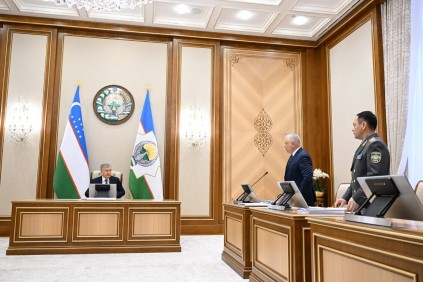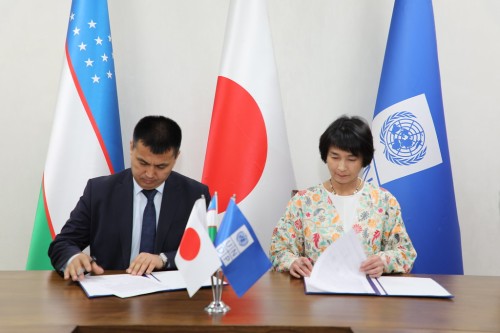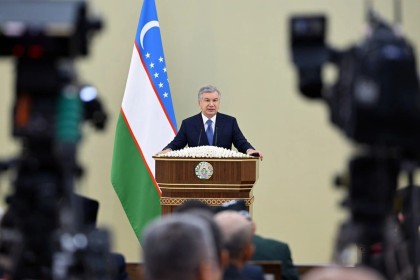In his recently telecasted annual national address, The President of the Republic of Uzbekistan, H. E. Mr. Shavkat Mirziyoyev put forward the next year's agenda, and shared the action plan the government will take in order to achieve them. The president declared that ‘2023’ will be the “Year of Human Care and Quality Education.”
In his eloquent speech, the President emphasized the value of quality education, and described that quality education is the only right way to the development of New Uzbekistan. In order to create a public discourse, this article discusses the present sorry state of higher education in the country, and suggests possible ways to improve it.
At present, the country has a network of 69 public universities, in which 39 are directly federal government funded, and the rest of 30 are funded by the provincial governments. Besides them the country has a huge network of exclusive research institutions, which are mandated to conduct cutting edge research, and also provide solutions to local challenges. Since 2016, the government has also awarded licenses to private players to establish universities to address unmet demand. So far the government has approved licenses to 72 private universities located in different regions. Besides the private universities, to promote competition and ensure quality education, the government also gave licenses to foreign universities. According to the latest gazette 23 foreign universities are operating in the country.
Compared with other central Asian countries, the country has one of the largest higher education infrastructures. Nonetheless, a single university from the country has not ranked even in the top 1000 in any of the three popular ranking agencies, Times, QS, and AWAS (popularly known as Shanghai Ranking). However, rather than beating around the bush, and doing comparison on other indicators, let’s go straight away and nip in the bud.
Except for a few premier higher education institutions in the country, the domain knowledge of faculty members is outdated, and that is clearly reflected in their output in terms of number of publications. In 1996-2021, the scholars in the country wrote 707 citable documents per annum, which is abysmally low compared with other Asian countries considering the size of the population.
The pertinent question is how to do capacity building in higher education? There are multiple ways; however we have to go by a fundamental economic principle to optimize the solution with the given limited resources.
To begin with, higher education institutions may consider introducing at least 72 hours a comprehensive refreshment course in research methodology in respective disciplines. A course may provide a brief training in English language, where agencies such as British Council, or ETS or AI based applications could be engaged in designing customized curriculum for academic English. However, a substantial part of the course may include training in modern research tools such as editing software Latex, new data sources, training in statistical software etc, where the agencies like the World Bank, the European Union, and reputed universities could be involved. The outcome of the training program may be evaluated by a publication of an article in an indexed journal such as Scopus or SSCI (in the case of social sciences) etc. Organization of the course could be planned at the provincial level, where the universities which have the best department in a specific discipline may be a nodal point to conduct the course.
Furthermore, the President in his speech with great intention highlighted an initiative to send 500 fellows to get training at the best universities and centers in the world. However, let’s view this process the other way round, especially in social sciences, and management, and inviting faculty from top 200 universities to offer one or two courses every semester would have a higher spillover effect, and would improve the overall quality of the entire program.
The above ways are mostly to strengthen capacity in public institutions, however, simultaneously, we also need to recognize the role of private universities in ensuring access to quality higher education in the country, and support them in institution building.
In spite of more than a half decade of existence of private higher education in the country, still there is a wider misconception about the legitimacy of private universities. The possible reason could be that these misconceptions have not been debunked at the highest level in the government.
To raise the challenges and issues faced by the private universities in the country, one of the authors of the article suggested establishing an association, however due to bureaucratic wrangling the idea did not see the light of the day.
At private universities everything is not hunky dory, one of the authors in his personal teaching experience in an undergraduate program asked students to prepare a country specific economic report while addressing three precise questions. The assignment was expected to be completed in English. One of the students submitted the pictures of the Wikipedia’s page of the country. Amusing part is that he did not even consider typing or copying on paper.
A learning is that private universities have different models, and there is a higher likelihood that insincere candidates would be able to secure their admission. But, this is a responsibility of the regulatory body (Ibrokhim Yulchiyevich Abdurakhmonov) that without a proper skill-set, candidates should not be awarded certificates in order to avoid future system’s failure.
We conclude by a prophecy that the country is having a potential not only to provide cutting-edge education to its own citizens, but also to become an education hub in the region with a caveat to our ability to address supply side issues.
By: Devendra Kumar, visiting Turan International University on academic assignment, and
Sardorbek Isroilov, PR Officer at TIU, Namangan.














